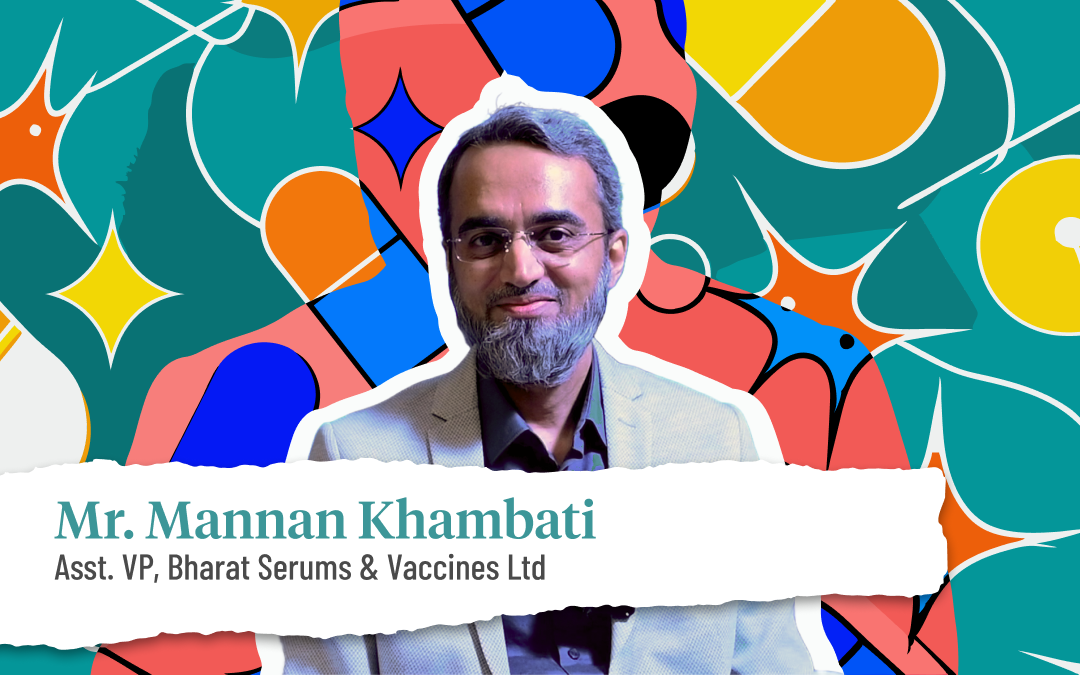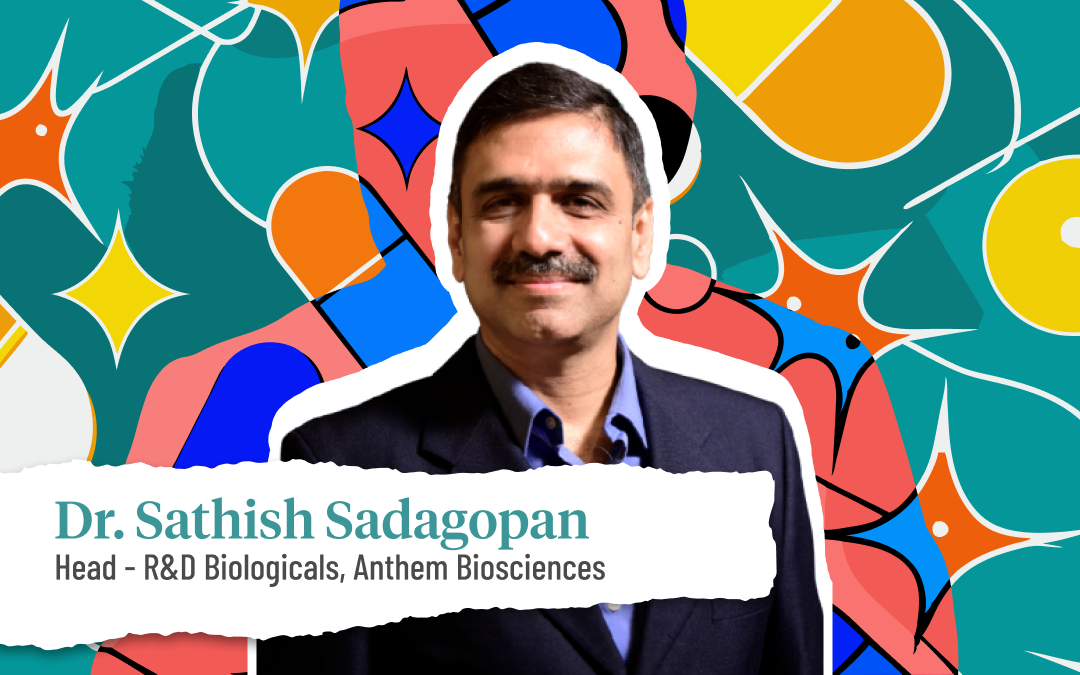QnA
Interview | February 21, 2026
ABOUT
Ms. Rajni Jha is a seasoned pharmaceutical specialist with extensive experience in product development and regulatory affairs. She has a strong track record in guiding complex drug development projects from concept to market, with expertise spanning across formulation, clinical research, and regulatory submissions. Her leadership in handling global regulatory requirements has significantly contributed to the successful launch of several pharmaceutical products. Known for her strategic approach and in-depth industry knowledge, Rajni has been a key player in ensuring compliance and driving innovation in pharmaceutical development.
Mr. Ravindra: Good morning, Ms. Rajni. Welcome to Pharma Now. I've heard a lot about you and your work in the regulatory area, and I'm very excited to discuss your journey today. Can you start by sharing how you began your career?
Ms. Rajni: Good morning, and thank you. My career began with my background in synthetic organic chemistry from IIT Kanpur. I started in the research and development team at Ranbaxy, working in the lab with various chemicals. I was involved in development, technology transfer, and commercialization.
After about five years in the lab, I moved into regulatory affairs, which involved interacting with authorities, understanding their requirements, and submitting and representing our dossiers. I spent six years in regulatory, working with global markets, including the US, Europe, Japan, Asia, and some underdeveloped countries. I worked with eight or nine major pharma companies in India and abroad, learning a lot from each experience.
Throughout my career, I have worked in various locations, adapting to different cultures and company environments. I started as a junior team member and gradually took on more responsibilities, learning to be humble and building a strong, collaborative team. I'm fortunate to have never faced gender bias in my 32-year career, although there were challenges related to salary structures and designations.
Now, as a freelance consultant, I provide consultancy for regulatory affairs, workshops, training future chemists and pharmacists, and working with industry management. I focus on feedback and continuously improving my services to meet the needs of my clients.
During the Coronavirus phase, I collaborated with academic institutions to train and motivate students for the pharma field, addressing gaps in their curriculum to better prepare them for industry demands. I also emphasized the importance of artificial intelligence and electronic submissions in regulatory processes.
In my career, I have also prepared Indian manufacturing plants for audits, drawing from my extensive experience. This involved traveling to remote locations and facing unique challenges, but the satisfaction of helping companies succeed in audits has been immensely rewarding.
Mr. Ravindra: That's a fascinating journey. I'd like to delve deeper into your manufacturing visits and experiences. But first, for our audience, could you explain the roles of various regulators like USFDA, MHRA, and PMDA, and why they are important?
Ms. Rajni: Certainly. Regulators like the USFDA (Food and Drug Administration), EMA (European Medicines Agency), and others ensure the efficacy and safety of drugs. They set guidelines and monitor compliance to protect public health.
For example, the USFDA reviews submissions, conducts GMP (Good Manufacturing Practice) inspections, and ensures documentation practices are followed. Similarly, Europe has its regulatory bodies, and each country may have its own. These regulators ensure that drugs are free from harmful impurities and are manufactured in safe conditions.
Regulations evolve based on scientific advancements and past experiences. Regulatory authorities require companies to submit detailed data and undergo inspections before granting marketing licenses. This ensures that only safe and effective drugs reach the market.
Mr. Ravindra: With the rise of biosimilars, how are regulatory processes adapting, and what challenges are associated with biopharmaceuticals compared to traditional pharmaceuticals?
Ms. Rajni: Biosimilars, derived from living organisms, are more complex than traditional pharmaceuticals, which are chemically synthesized. The regulatory requirements for biosimilars are different and often more stringent due to their complexity and therapeutic potential.
Biosimilars can offer better therapeutic effects but are currently more expensive. The industry is evolving, and India is looking at significant opportunities in this field. However, challenges include the high cost of bioreactors, the need for government incentives, and the complexity of clinical studies.
Despite these challenges, biosimilars have the potential to replace many traditional generic medicines in the future. Regulations and requirements are adapting, and companies must invest in the necessary infrastructure and training to meet these new standards.
Mr. Ravindra: What advice would you give to Indian companies and startups aiming to scale up for globalization, particularly in regulatory compliance?
Ms. Rajni: First and foremost, establish a robust quality management system tailored to your business aspirations and target markets. Train your personnel to understand the significance of compliance and instill a culture of quality and accountability.
Conduct thorough risk evaluations and have a clear risk management strategy. Implement a quality by design approach, breaking down your manufacturing processes into micro-steps and evaluating each step's importance.
Stay updated with evolving regulations and ensure your documentation and practices are in sync with regulatory requirements. Collaboration with contract research organizations and manufacturing companies can also be beneficial.
Lastly, maintain professional integrity and prioritize the safety and efficacy of your products, as ultimately, these are life-saving drugs that you, your family, or anyone else might consume. So this would be my message to all.
Mr. Ravindra: I think this is really interesting and very insightful. So thanks a lot for your time and this insightful discussion.
Ms. Rajni: Thank you for allowing me to put across my thoughts. Thanks a lot. Thank you so much.

FT - Dr. Subhash Thuluva

FT - Mr. Mannan Khambati

FT - Dr. Pratima Srivastava

FT - Dr. Sathish Sadagopan

FT - Dr. Subhash Thuluva
Dr. Subhash Thuluva, Senior VP at Biological E, shares his 25-year journey in clinical development, ...

FT - Mr. Mannan Khambati
Mr. Mannan Khambati, AVP of Biotech Manufacturing at Bharat Serums and Vaccines, shares his inspirin...

FT - Dr. Pratima Srivastava
Dr. Pratima Srivastava, Vice President at Aragen, shares her remarkable journey from aspiring scient...

FT - Dr. Sathish Sadagopan
Dr. Sathish Sadagopan, Senior GM at Anthem Biosciences, shares his journey from academia to leading ...